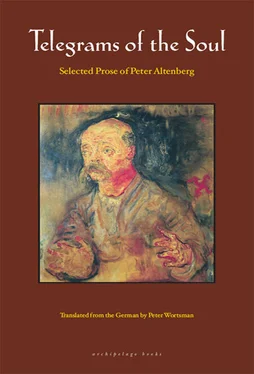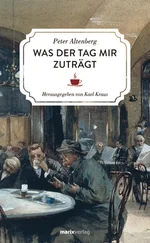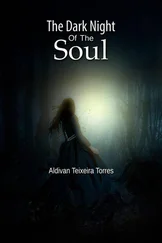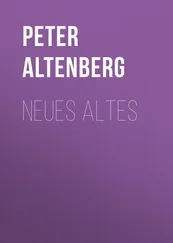It was not his first flirtation with the exotic. Altenberg’s second book, Ashantee, published in 1897, recounts his dealings with and vivid impressions of the inhabitants of an African show-village on display for a year as a live exhibit in Vienna’s zoological garden. The grotesquery of the very premise of such an exhibition is lampooned in a short reflection entitled “Philosophy”:
Visitors to the Ashanti Village knock in the evening on the wooden walls of the huts for a lark.
The goldsmith Nôthëi: “Sir, if you came to us in Accra as objects on exhibit, we wouldn’t knock on the walls of your huts in the evening!”
Yet rather than stand above it all and wag a virtuous finger at the crude voyeurism of Viennese visitors, for whom the Africans on display were little more than talking animals, Altenberg de-constructs the spectacle by stepping inside it. He falls in love and loses his heart to various black girls and ladies “on display” and peals off their shell of otherness — an otherness he knew all too well under his own white skin, as a baptized Jew trying to pass in an often hostile world given to Catholic piety and Teutonic cult.
But while Altenberg the author let his imagination wander to exotic climes and loved to wax eloquent about Nature, à la Ralph Waldo Emerson, Altenberg the man was a hopeless homebody, a die-hard city slicker who dared not venture outside his beloved Vienna, except to revisit nearby Austrian spas and resorts cherished in childhood, and on a few occasions, to soak up the sun and surf on the Lido outside Venice. A piece entitled “Traveling” is, in fact, devoted to the “dirt-cheap pleasure altogether free of disappointments, to study the train schedule from mid-May on and pick out the very train with which you would, if only. .”—in short, the pleasure of staying put.
Perils lurked outside the safe periphery of the urban grid. Altenberg’s Nature is at once an idealized locale and a metaphor for an unleashed sexuality which he both craved and feared. Consider the unabashed phallic fantasy that underlies the following paean to the great outdoors from the aforementioned “Autobiography”:
As a boy I had an indescribable love for mountain meadows. The mountain meadow steaming under the blazing sun, fragrantly wafting, alive with bugs and butterflies, made me downright drunk. So too did clearings in the woods. On swampy sunny patches sit butterflies, blue silken small ones and black and red admirals and you can see the hoof print of deer. But for mountain meadows I had a fanatical love, I longed for them. Under all the white hot stones I imagined there lurked poison adders, and this creature was the very incarnation of the fairy tale mystery of my boyhood years. It replaced the man-eating ogre, the giant and the witch. All the bites and their consequences, the terribly slow and torturous pain, I knew it all by heart, how to treat a wound and so on. The wondrously delicate gray-black body of the adder seemed to me to be the loveliest, most elegant creature, and when I loved a little girl I always pictured again and again only one thing happening: an adder bit her in the foot on a hike and I sucked out the venom to save her!
Enamored as he was of Nature’s lure, he preferred to take it in limited doses. In the same text, he admits to never actually having seen an adder. “It remained for me a bad but sweetly disturbing dream.”
Readers disinclined to the short form may indeed find Altenberg’s sketches a bit claustrophobic and his attachment to his native stomping ground positively suffocating. It may seem at times as if he managed to stretch the city itself into a giant nursery navigated on a hopscotch grid. And though Altenberg’s Vienna is peopled with pimps and prostitutes, cabbies and call girls, florists and floozies, there is a certain childlike innocence about them all. The hookers may not all wear their hearts on their sleeve, but they won’t give you the clap. And some of them, like the hired subject of “Poem,” even write verse. His cast of characters comprise a collection of more or less accommodating playmates in an elaborate game with rules of his own devising. Even the most venomous types have been defanged. In “My Gmunden,” a mysterious stranger with paranoid delusions encountered, notably not in Vienna but in the resort town of Gmunden, pulls out a Browning revolver and bids the narrator enjoy his supper—“Because it’s your last!” In the story, the threatening stranger becomes an odd sort of Doppelgänger, a troubled comrade in arms, a fellow Meshuganeh.
In the short form, Altenberg isolated and delineated pleasures and pitfalls, savoring the former and attenuating the sting of the latter, compressing life into tiny parcels of manageable experience and prescribing them like pills to his reader.
He played his own heartstrings like a harp, plucking and letting go, teasing himself into a neverending state of excitation, and in the process eliciting a flurry of charged preludes. Whether taken as crystallized spasms of a crippled libido or as grains of irritation compounded into pearls, these texts transcend the moment of their creation and cry out with a remarkable modernity.
While such celebrated Fin-de-Siècle literati as Arthur Schnitzler and Hugo von Hofmannstahl read dated and a bit dowdy today, the sputtering sparks of a fire gone cold, Altenberg’s clipped “telegram style” resonates like bolts of prescient lightning leaping from one turn of the century to the next. “Only in the era of telegraphy, lightning fast trains and automobile-cabs,” wrote his friend and promoter, Egon Friedell, “could there emerge such a poet whose passionate desire it is to always stick to the essential.”
Western Union has since given way to AOL and the trains and cars have accelerated considerably. The angst-ridden rapid-fire era of the telegram and the tommy-gun has spawned the frenetic age of email and e-war, with love and death on demand at the press of a button. Raised on the knowledge that an atom of matter is all it takes to make a pretty big bang, we’ve refined our taste for the essential. E=MC 2, the concise epic of the 20th century, is, after all, only three letters long. Now that we’ve turned the corner into the 21st century, Altenberg’s telegrams of the soul read right up to date.
Peter Wortsman
P.A. gripped the frames of his spectacles, wavering between the urge to crush them and to slip them into his inside pocket. Portable windows, he called them and laughingly imagined replacing the lenses with stained shards stolen from the Sainte Chapelle in Paris. It would lend me, he would tell his friends, a more colorful imagination. He took out a pen to jot down the thought, but the weight of the gold-tipped fountain pen (a gift from a female admirer) was suddenly more than he could bear, and besides, he had no paper. Waiter, he called, bring me another slivovitz. It was his fifth of the afternoon. Another could not hurt and perhaps it would loosen the tightness he felt in his brain. In a dream the night before, he had witnessed the digging of the Erie Canal, watched nubile young girls obliged to ride naked and bareback on Indian elephants drawing barges behind. He awakened to the frightening spectacle of their revolt, girls and elephants charging at him out of his sweat-soaked pillow. Waiter, he called, bring me a sheet of paper. I want to note down how curious it is to feel the flesh of nonexistent women. The waiter shook his head and smiled, accustomed to the habits of the poet.
P.W.











